第1章 LOVE FOR LOVE--A COMEDY(1)
Nudus agris, nudus nummis paternis, Insanire parat certa ratione modoque. - HOR.
TO THE RIGHT HONOURABLE CHARLES, EARL OF DORSET AND MIDDLESEX, LORD CHAMBERLAIN OF HIS MAJESTY'S HOUSEHOLD, AND KNIGHT OF THE MOST NOBLE ORDER OF THE GARTER, ETC.
My Lord,--A young poet is liable to the same vanity and indiscretion with a young lover; and the great man who smiles upon one, and the fine woman who looks kindly upon t'other, are both of 'em in danger of having the favour published with the first opportunity.
But there may be a different motive, which will a little distinguish the offenders. For though one should have a vanity in ruining another's reputation, yet the other may only have an ambition to advance his own. And I beg leave, my lord, that I may plead the latter, both as the cause and excuse of this dedication.
Whoever is king is also the father of his country; and as nobody can dispute your lordship's monarchy in poetry, so all that are concerned ought to acknowledge your universal patronage. And it is only presuming on the privilege of a loyal subject that I have ventured to make this, my address of thanks, to your lordship, which at the same time includes a prayer for your protection.
I am not ignorant of the common form of poetical dedications, which are generally made up of panegyrics, where the authors endeavour to distinguish their patrons, by the shining characters they give them, above other men. But that, my lord, is not my business at this time, nor is your lordship NOW to be distinguished. I am contented with the honour I do myself in this epistle without the vanity of attempting to add to or explain your Lordships character.
I confess it is not without some struggling that I behave myself in this case as I ought: for it is very hard to be pleased with a subject, and yet forbear it. But I choose rather to follow Pliny's precept, than his example, when, in his panegyric to the Emperor Trajan, he says:-
Nec minus considerabo quid aures ejus pati possint, quam quid virtutibus debeatur.
I hope I may be excused the pedantry of a quotation when it is so justly applied. Here are some lines in the print (and which your lordship read before this play was acted) that were omitted on the stage; and particularly one whole scene in the third act, which not only helps the design forward with less precipitation, but also heightens the ridiculous character of Foresight, which indeed seems to be maimed without it. But I found myself in great danger of a long play, and was glad to help it where I could. Though notwithstanding my care and the kind reception it had from the town, I could heartily wish it yet shorter: but the number of different characters represented in it would have been too much crowded in less room.
This reflection on prolixity (a fault for which scarce any one beauty will atone) warns me not to be tedious now, and detain your lordship any longer with the trifles of, my lord, your lordship's most obedient and most humble servant, WILLIAM CONGREVE.
PROLOGUE. Spoken, at the opening of the new house, by Mr Betterton.
The husbandman in vain renews his toil To cultivate each year a hungry soil;
And fondly hopes for rich and generous fruit, When what should feed the tree devours the root;
Th' unladen boughs, he sees, bode certain dearth, Unless transplanted to more kindly earth.
So the poor husbands of the stage, who found Their labours lost upon ungrateful ground, This last and only remedy have proved, And hope new fruit from ancient stocks removed.
Well may they hope, when you so kindly aid, Well plant a soil which you so rich have made.
As Nature gave the world to man's first age, So from your bounty, we receive this stage;
The freedom man was born to, you've restored, And to our world such plenty you afford, It seems like Eden, fruitful of its own accord.
But since in Paradise frail flesh gave way, And when but two were made, both went astray;
Forbear your wonder, and the fault forgive, If in our larger family we grieve One falling Adam and one tempted Eve.
We who remain would gratefully repay What our endeavours can, and bring this day The first-fruit offering of a virgin play.